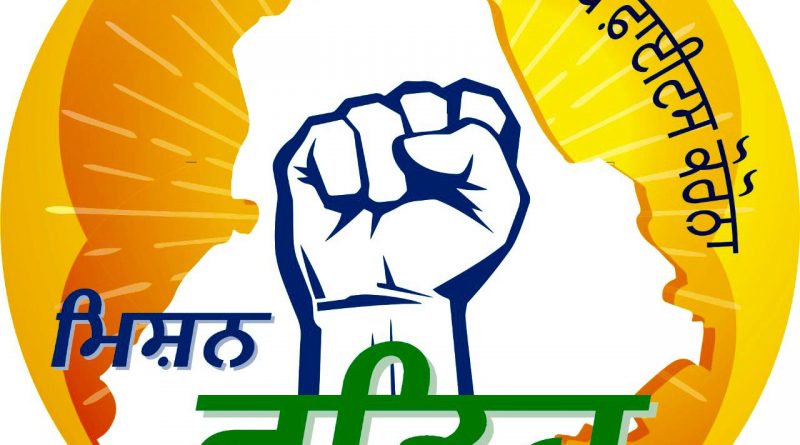PUNJAB ALLOWS ALL PRIVATE (NON–TRANSPORT) AND PUBLIC SERVICE VEHICLES
MISSION FATEH:
TO OPERATE FROM 5 AM TO 9 PM, SUBJECT TO STRICT RIDERS: DEPUTY COMMISSIONER
• ALL PUBLIC SERVICE VEHICLES HOLDING A STAGE CARRIAGE PERMIT SHALL BE ALLOWED TO OPERATE ON THEIR DESIGNATED ROUTE
• STATE CARRIAGE PERMIT BUSES CAN OPERATE IN THE RURAL AREAS SUBJECT TO CONDITIONS
• INTERSTATE BUS SERVICES ARE ALLOWED IN PRINCIPLE
News Punjab
Ludhiana, June 7: – In a bid to provide much needed respite to the citizens of the state to travel from one place to other to discharge their duties, the Punjab Government, under its Mission Fateh, has allowed all private (non–transport) and public service vehicles to operate from 5 AM to 9 PM, except in the containment zones declared by competent authority, subject to strict riders to stomp out the spread of deadly coronavirus. It was disclosed by Deputy Commissioner Mr Pradeep Kumar Agrawal on the basis of directions issued by the State Transport Department.
The Deputy Commissioner said that vide notification issued earlier by the Punjab Government on 31 May 2020, all the Public Service Vehicles including e-Rickshaws and Auto Rickshaws, Maxi Cab/Motor Cab and Private Vehicles (non-transport) were prohibited from plying between 9PM to 5AM upto 30 June 2020. He said that now the government has decided to provide some relief to the citizen so that they can commute to do their daily chores. He said that permission to ply Public Service Vehicles has been granted with the condition that, not more than 50% of the seating capacity of the bus shall be filled at any time during the journey of the bus in order to ensure adequate social distancing.
He informed that all Public Service Vehicles holding a Stage Carriage Permit shall be allowed to operate on their designated route, provided that the person operating the Public Service Vehicle shall ensure that Passengers only board such a Vehicle at the originating point of the journey, Passengers do not alight from the Vehicle other than at the terminating point of the journey or at a district headquarter or at Sub divisional head quarter or Block headquarters bus stands or municipal town bus stands en-route the journey. All passengers wear masks from the time of boarding till alighting from the Vehicle, Body temperature of each passenger has been checked before they are allowed to board a vehicle.
He said that State carriage Permit buses can operate in the rural areas subject to conditions mentioned above but for the buses of the State Transport Undertakings which are solely for the purpose of ferrying Government employees coming to Chandigarh from surrounding areas, all conditions mentioned above are not applicable except from the condition of 50% of the seating capacity of the bus. Wearing of mask shall, however, be mandatory during travel for Government employees also.
He said that the Interstate bus services are allowed in principle subject to the conditions mentioned in this order and Standard Operating Procedures issued by Transport and Health Departments from time to time. Transport Department will coordinate separately with each state and allow the operations. He said that E-Rickshaws, Auto Rickshaws, Maxi-Cabs, Motor-cabs are allowed with 1 Driver and 2 Passengers only. E-Rickshaws, Auto Rickshaws, Maxi-Cabs, Motor-cabs should be properly sanitized after every trip. He said that Car-polling/Car-sharing by the aggregators is not permitted.
Mr Pradeep Kumar Agrawal said that permission to ply Private Vehicles (Non-Transport) has been granted with the condition that, in case of two-wheelers 1 Driver along with a maximum of one Pillion Rider, who is a minor child or spouse of the driver, is allowed. In case of four-wheelers 1 Driver along with a maximum of two Passengers are allowed. Higher occupancy up to the maximum capacity of a vehicle is permitted only in case all the occupants belong to a single family (parents, spouse and children only)
The Deputy Commissioner further said that the General Conditions for Private (Non-Transport) & Public Service Vehicles included that all the manpower deployed on a Public Service Vehicle should undergo self-monitoring for symptoms and in case any symptom appears then he shall report the same to the District Magistrate or Civil Surgeon. All Guidelines, protocols, orders in relation to COVID-19 issued from time to time under Epidemic Diseases Act 1897 and The Disaster Management Act 2005 shall apply. “Any violator of these orders would be prosecuted under relevant Provisions of National Disaster Management Act 2005, IPC and Motor Vehicle Act 1988.” added Mr Agrawal. All guidelines and Standard Operating Procedures of the Department of Transport shall also be applicable.

